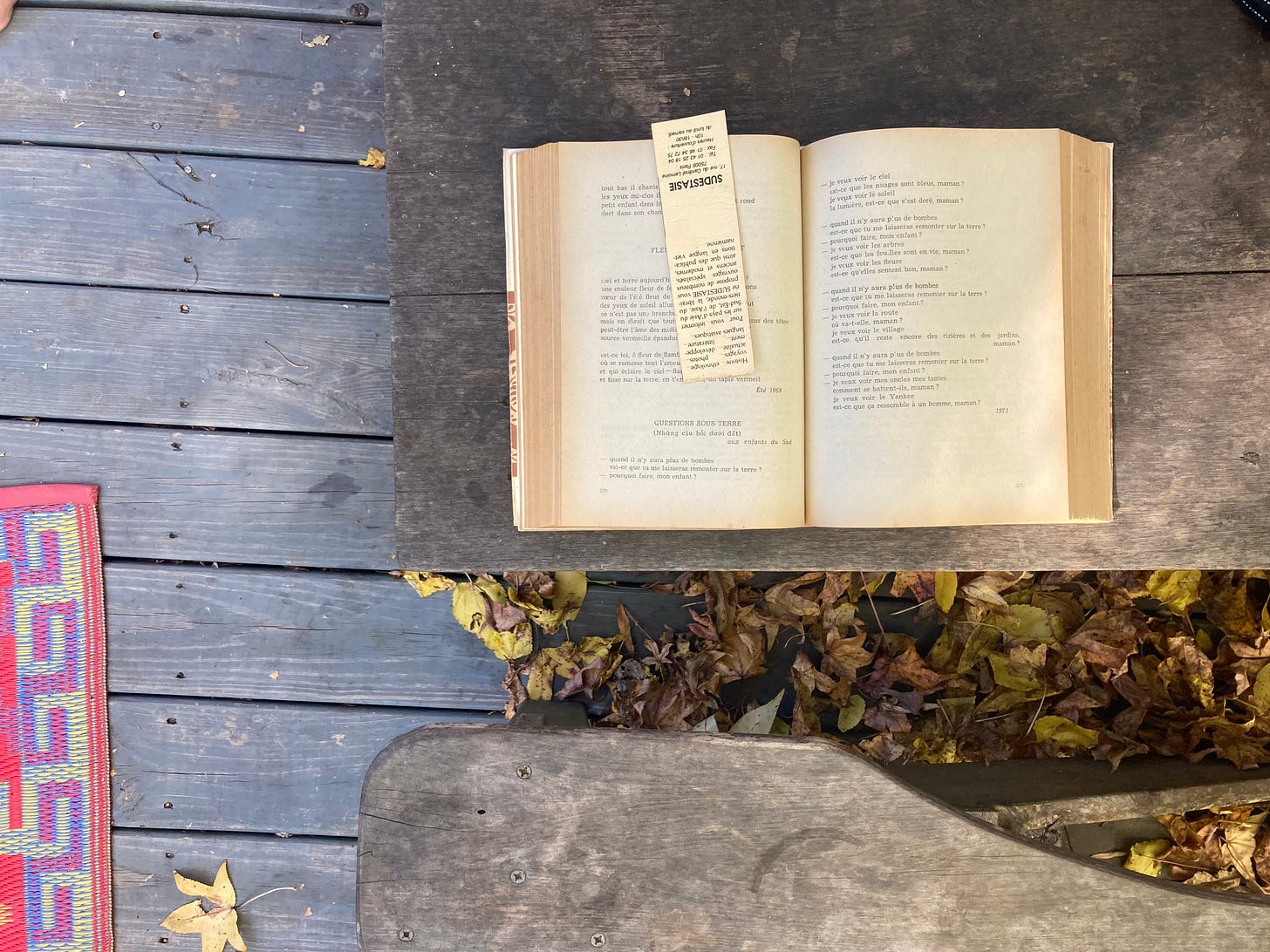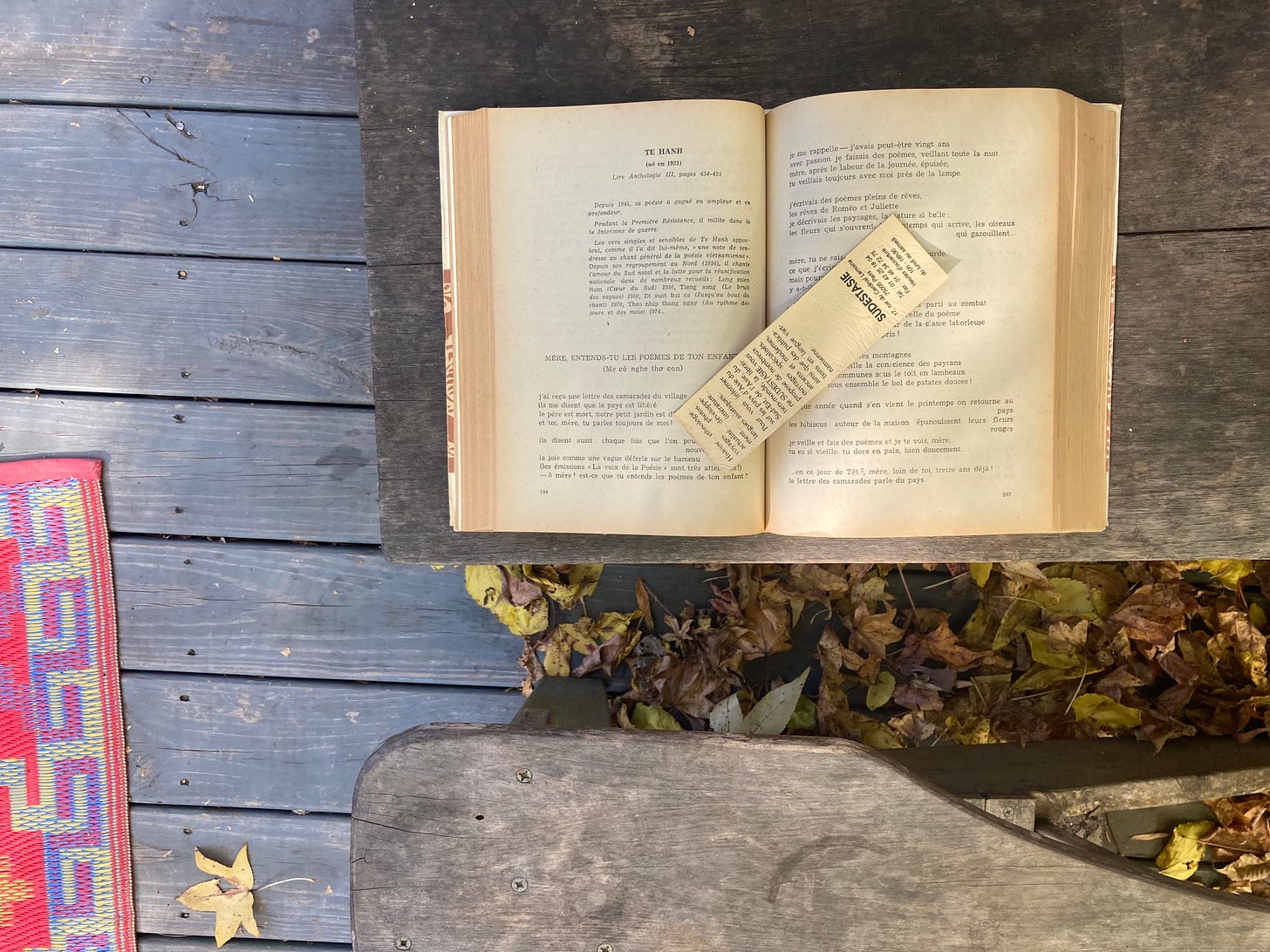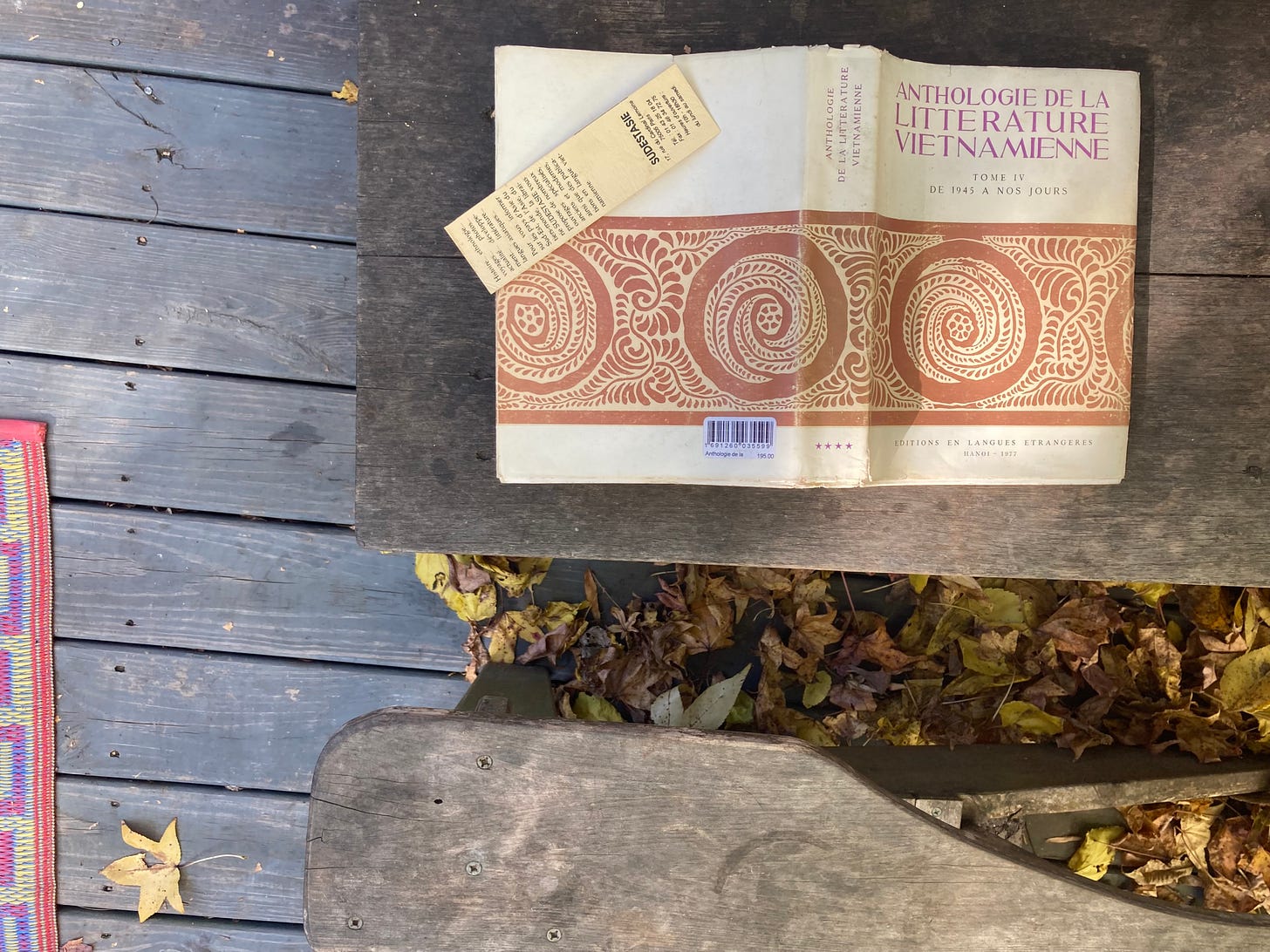Questions Underground
(Những câu hỏi dưới đất)
aux enfants du Sud to the children of the South
when there will be no more bombs will you let me climb back up on top of the earth?
to do what, my child? I want to see the sky are the clouds blue, mother? the light, is it still golden, mother?
when there will be no more bombs will you let me climb back on top of the earth?
to do what, my child? I want to see the trees are the leaves alive, mother? I want to see the flowers do they smell good, mother?
when there will be no more bombs will you let me climb back on top of the earth?
to do what, my child? I want to see the road where does it go, mother? I want to see the village are there still paddies and gardens, mother?
when there will be no more bombs will you let me climb back on top of the earth?
to do what, my child? I want to see my uncles my aunts how do they fight, mother? I want to see the Yankee does it look like a man, mother?
Te Hanh (born in 1921) See the third volume of this anthology, pages 454-455.
Since 1945, his poetry has gained in width and depth. During the First Resistance, he was a militant in the 5th Interzone of the war. The simple and sensitive verses of Te Hanh carry, as he has said himself, “a note of tenderness to the the general song of Vietnamese poetry.” Since his regrouping to the North (1954), he sings the love of his native South and the fight for national reunification in several collections: Long mien Nam (Heart of the South) 1956, Tieng song (The Sound of Waves) 1960, Di suot bai ca (To the End of Song) 1970, Theo nhip thang ngay (To the Rhythm of Days and Months) 1974 . . .
With love to my friend Hữu Ngọc and his chief Nguyẽn Khắc Viện, who edited and published this volume in great hopes for peace in 1977, at the publishing house where Ngọc welcomed me 20 years later and I met Viện on his deathbed around the corner.
This is the first Viet Nam letter of exactly 1 so far addressing Mireille Gansel’s translation “Questions sous terre” with poet Xuân Diệu and editor Hữu Ngọc from the work of poet from poet Tế Hanh.
We also have written once only on the 3 friends’ translation “Les fleurs s'ouvrent sur ta tombe” from poet Thanh Hai on February 7, 2023, and on the translation “Chaque jour je viens quand même” from poet Hoàng Trung Thông on November 7, 2022.
We have twice sent letters on their translation “Être mère au Viet Nam” by poet Chế Lan Viên, the first on November 30, 2022, and the second on December 27, 2022.
We twice have addressed as well their translation “Poème des chauffeurs de camion sans pare-brise” by poet Phạm Tiến Duật, first on December 18, 2022, the again on January 8, 2023.
We have written letters as well about Sang et Fleurs, her collection of translations with Xuân Diệu from poet Tố Hữu. We sent the first of 5 on February 28, 2023, the second on March 3, 2023, the third on March 9, 2023, the fourth on March 12, 2023, and the fifth on March 24, 2023.
We have written once so far about her recollection and study of translation, Traduire Comme Transhumer.
Viet Nam letters respects the property of others under paragraph 107 of United States Code Title 17. If we asked for permission it wouldn’t be criticism. We explain our fair use at length in the letter of September 12, 2022.








Interesting and so sensitive.